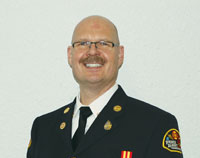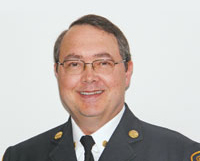
Features
Leadership
Leadership Forum: March 2014
We have had the pleasure of writing leadership columns for Fire Fighting in Canada since 2010.
February 26, 2014
By Les Karpluk and Lyle Quan
We have had the pleasure of writing leadership columns for Fire Fighting in Canada since 2010. All of our columns have focused on current issues or less-dramatic but just-as-relevant topics, such as succession planning or creating a positive culture in the fire hall. And, all of our columns have focused on one key theme that we both embraced the day we started writing: the true essence of leadership.
One of the greatest benefits of writing these columns is that, through our research and the feedback we receive from our peers, we have learned quite a bit about leadership. No one knows everything about leadership and team building, but together we have shared and learned from each other.
Through our columns and presentations we advocate that leadership is more than just wearing the white helmet or having more stripes on your shoulder than the rest of the department members; it’s about sharing what you have learned, yet at the same time, allowing others to make mistakes as they grow into their roles as leaders. Leadership is more than giving orders, it’s also about leaving a legacy that will continue to flourish long after you have left your organization.
For the fire chief, leadership is also about making sure the house is in order when you retire or leave for other opportunities. Ultimately, your goal should be to ensure that you leave the department in better shape than when you arrived and have things in order for the new fire chief. Do you have a strategic or master plan in place that can give the new fire chief some guidance as to what has been accomplished and what still needs to be addressed? Even if you don’t plan to leave the fire service in the very near future, do you have a formal plan in place to give your team and the community for which you work some indication of your future vision of the fire service? Remember, if it isn’t on paper, how can you measure your progress, or lack thereof, and how can others understand your future plans? The only way you can track and demonstrate success with your programs and initiatives is to have a plan that identifies your baseline and sets the benchmarks, along with milestones to create check points for timely reviews.
Sooner or later, every firefighter or fire chief needs to retire and move into another phase of life. Though retirement is on the horizon (for Lyle), we plan to continue our work to promote leadership at all levels within the fire service. That might be through our column, at speaking engagements, by working with other fire departments in a consulting/supportive role or by publishing a book; that is what we see as our legacy.
Our overall goal is to ensure that our teachings and the lessons we have learned continue to flourish in the fire service. Based on this goal, we have been working on a book that we hope will offer some sage advice to present and future leaders within the fire service. We want it to be more than just another fire service book, so we have added some exercises through which you can write down and track your thoughts and future goals. As with anything in life, the results you achieve will be in direct proportion to the effort you put into your goals.
The book was expected to be released in March. Ultimately, we are hoping that the exercises in the book will lead readers to search out more information to become more aware of the key issues facing our present and future fire-service leaders.
Years from now, it is your legacy that will dictate how others remember you. Will you be one of those fire chiefs who did what they could but got out when they reached the age of retirement? Or will you be remembered as the fire chief who truly cared for his or her fire department and the people in it? These are some major questions that you not only need to ask yourself, but you need to answer honestly.
We will leave you with this final thought: If there is no plan in place for your successors then you are setting them up to fail. This is not what true leaders would leave as their legacy.

|
 |
Les Karpluk is the fire chief of the Prince Albert Fire Department in Saskatchewan. Lyle Quan is the fire chief of Waterloo Fire Rescue in Ontario. Both are
graduates of the Lakeland College Bachelor of Business in Emergency
Services program and Dalhousie University’s Fire Service Leadership and
Administration program. Contact Les at l.karpluk@sasktel.net and follow
him on twitter at @GenesisLes. Contact Lyle at lyle.quan@waterloo.ca and
follow him on twitter at @LyleQuan.
Print this page